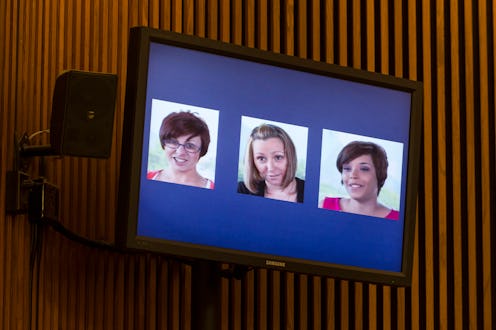News
Victims Deal With Suicide of Ariel Castro
Ohio communities are rallying around the victims of convicted kidnapper and rapist Ariel Castro, after he committed suicide on Tuesday night.
On Wednesday, Cleveland's Mayor Frank Jackson reminded the public to retain focus on the victims, and to concentrate on their well-being and recovery. He also encouraged the public to respect the privacy of the three women who were held by Castro, and who were repeatedly raped and abused over a period of 11 years.
On Wednesday, the volunteer community security group the Guardian Angels positioned themselves outside of the house of victim Gina DeJesus, saying that the family wanted to retain their privacy as news of Castro's suicide spread.
Castro's death was ruled a suicide by hanging with a bed sheet after an autopsy on Wednesday. While the inmate was in protective custody at the time of his death (meaning that he was checked on by guards every 30 minutes) he was not on suicide watch, a factor his attorney says he wants looked into.
On August 1, Castro was sentenced to life without parole plus 1,000 years in prison for his crimes. The kidnappings took place separately from 2002 through 2004 when the women were between the ages of 14 and 20 years old. During their more than 10 years of being held in his house, Castro abused and raped the three women, and fathered a 6-year-old daughter with one victim, Amanda Berry.
Psychologist Dr. Linda Papadopoulos told NBC News that Castro's suicide could rob his victims of an important sense of justice. "He decided his fate, something they were never ever ever able to do for themselves. He had ultimate control. To some extent this was in a way his last slap to their faces," she said.
